

Nearly two years into the coronavirus pandemic, the worst worldwide outbreak since the Spanish flu over 100 years ago, the Omicron variant of the virus is in retreat in most parts of the world.
As countries reassess their response to the pandemic, many of them are pondering how they will react to the next outbreak.
24/Tempo has compiled a list of what countries are doing to address diseases that could become epidemic or pandemic, based on the Global Health Security Index, an assessment of global health security capabilities in 195 countries prepared by the Johns Hopkins Center for Health Security, the Nuclear Threat Initiative, and the Economist Intelligence Unit. Additional information was obtained from a variety of sources, including the BBC, Brookings, King’s College London, Medical News Today, the World Health Organization, and the CDC. (These are the worst epidemics and pandemics in history.)
Besides collaboration and cooperation between nations, countries are looking to create clear decision-making entities, strengthen surveillance measures, improve delivery of vaccines, be more transparent with information, dedicate more funds for healthcare, identify and isolate infected areas, and develop a centralized database of a country’s health records, among other initiatives.
Because of previous pandemics, many East Asian nations were, in general, better prepared for COVID-19 than other countries. According to a report from the World Health Organization, 22 out of 27 countries in the Western Pacific have national plans for pandemic preparedness. WHO reported that 92% of these countries conduct outpatient surveillance for influenza-like illness, and 29 of them have shared data through FluID, a global influenza data-sharing platform. (Read how COVID fatality rates compare with those for other diseases.)
Click here to see what countries are doing to address the next pandemic
Even though many in the West predicted catastrophe for Africa, that continent fared much better than most of the world. The Africa Centres for Disease Control and Prevention created the Africa Task Force for Novel Coronavirus to coordinate the response to the pandemic a month before WHO officially declared it, and before the first case of COVID was detected in Africa. A meeting of 55 ministers of health across the continent agreed on a strategy of preventing transmission and mitigating community spread to prevent burdening stressed healthcare systems.
Australia
> Population: 25,499,884
Scientists in Australia are fearful of a disease that probably originated in New Guinea called Buruli ulcer, caused by the flesh-eating bacterium Mycobacterium ulcerans. The disease, if untreated, can cause disfigurement and loss of extremities, but it can be treated with antibiotics. Scientists are trying to determine the role possums and humans play in spreading the bacterium, and whether it could travel beyond the continent. Buruli ulcer is classified as a “neglected” international disease and there is little money for researching it.
[in-text-ad]

Brazil
> Population: 212,559,417
Yellow fever is caused by a virus spread between humans and primates via mosquitoes in tropical and subtropical areas of Africa and South America. Its proliferation is becoming more alarming especially in places like Brazil, where rainforests are being cut down, meaning increased contact between people. To try to pre-empt the spread of the disease, Brazilian health officials are vaccinating golden lion tamarins, primates that can transmit it.
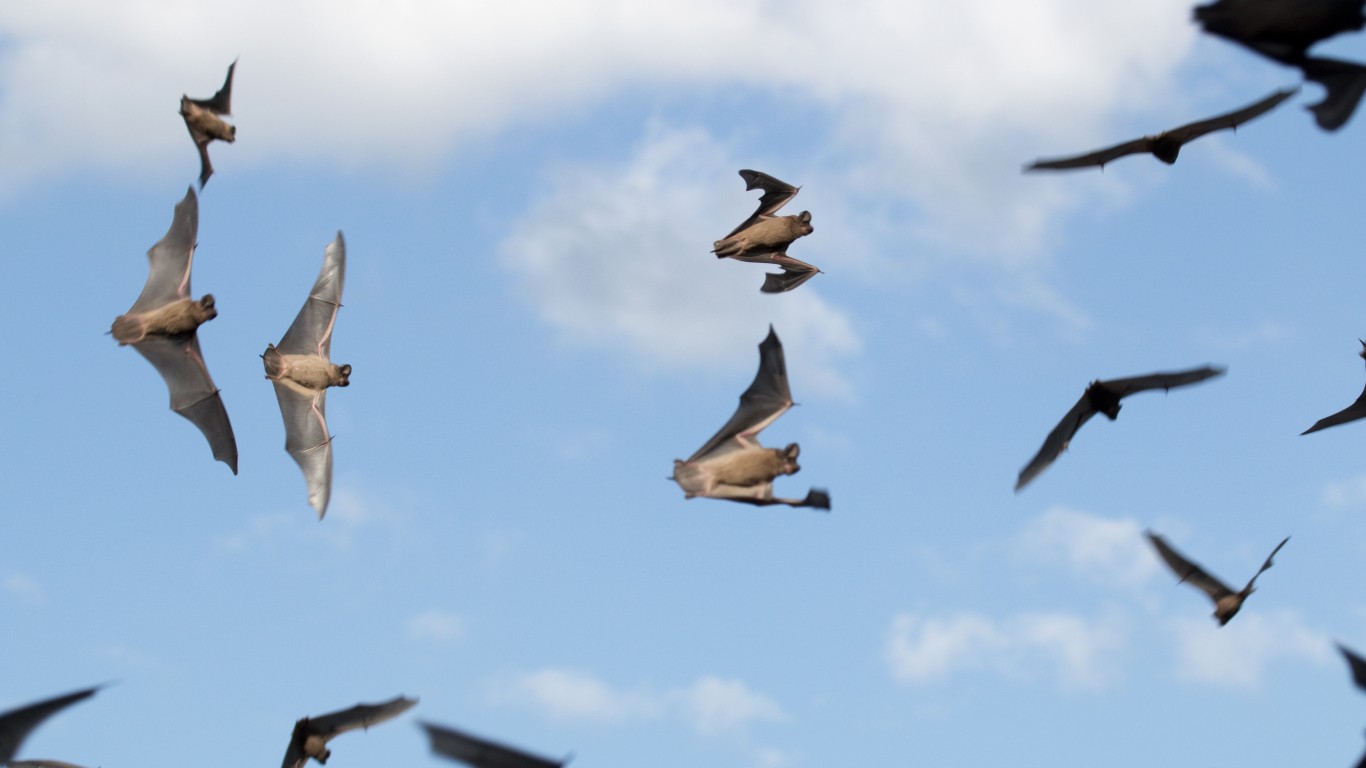
Cambodia
> Population: 16,718,965
Nipah virus is one of the World Health Organization’s top-10 priorities among diseases it fears could cause a pandemic. Nipah is a newly emerging zoonosis, a disease transmitted from animals to humans. Bats are the host for the virus, which was first identified in 1998 at Kampung Sungai Nipah village, Malaysia. It has a reported 75% fatality rate, and there’s no vaccine for it. Scientists studying the disease are concerned that overdevelopment and encroachment on bat habitats is making further outbreaks possible. Cambodian scientists headed by Veasna Duong, head of the virology unit at the scientific research lab Institut Pasteur in Phnom Penh, are conducting surveillance of fruit bats that carry Nipah.
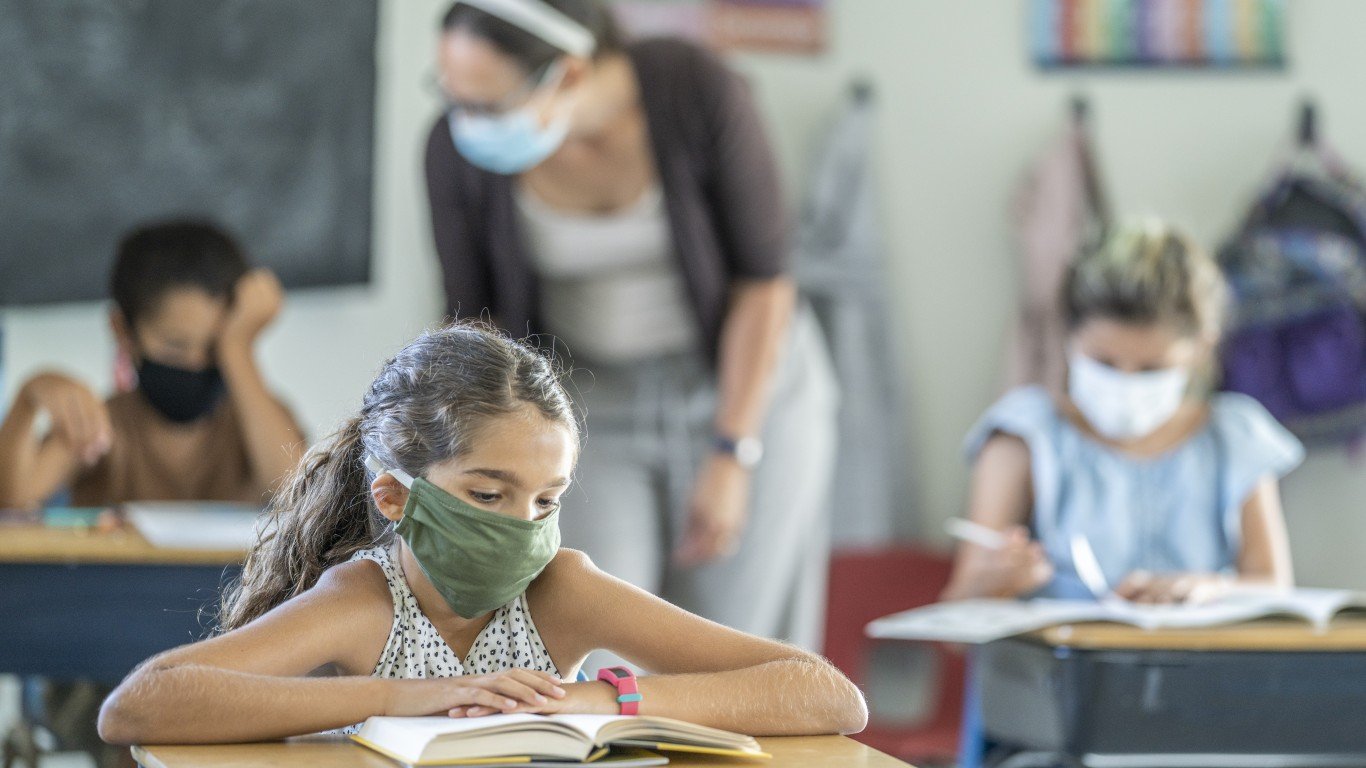
Canada
> Population: 37,742,154
Canada earned fourth place on the 2021 Global Health Security Index among 195 nations surveyed, raising its ranking by 2.2 points – the most of any country in the top 10. Among the six categories in which countries were evaluated, Canada boosted its scores in prevention of the emergence or release of pathogens; early detection and reporting epidemics; sufficient and robust health system; compliance with global norms; and overall risk environment.
[in-text-ad-2]
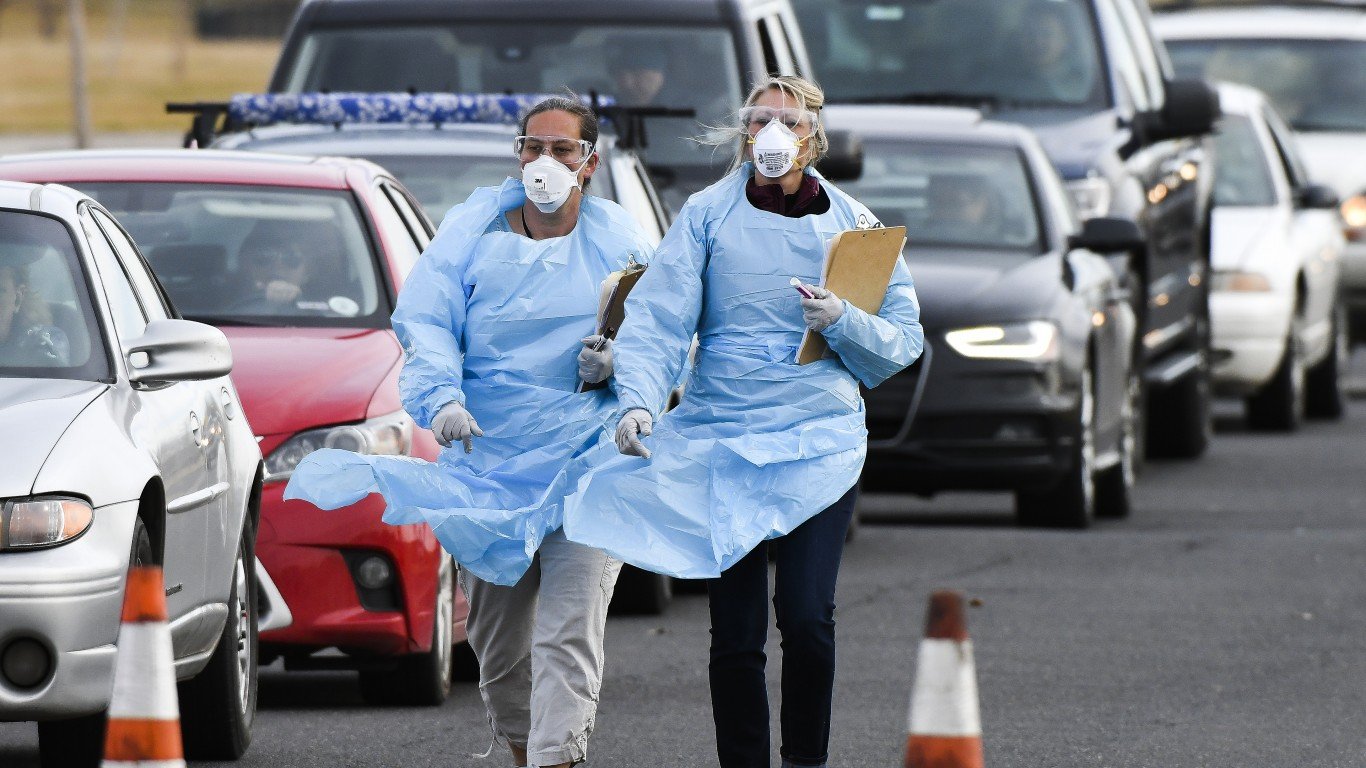
Canada, Mexico, US
> Population: 00
The three countries pledged to update the North American Plan for Animal and Pandemic Influenza. They also committed to shoring up medical supply chains and exploring ways to produce the components of vaccines and other public health supplies. The nations also pledged to improve capacity and leadership to prevent and respond to infectious disease threats in North America.

Georgia
> Population: 3,989,167
The Central Asian nation of Georgia bolstered its Global Health Security Index score by more than four points by improving its health system. Most notably, the country raised its score on medical countermeasures and personnel deployment from zero to 50. (The global average is 10.3.) Georgia also improved the score for its supply chain for health system and healthcare workers by more than 20 points to 33.3, which is above the global average for 2021, and posted increases in the categories of detection and reporting and rapid response.
[in-text-ad]

Germany
> Population: 83,783,942
The last H1N1, or swine flu, epidemic began in central Mexico in October 2009. It spread to 74 countries before vaccination efforts led by the United States ended the pandemic. The CDC estimates that between 151,700 and 575,400 people had died by that time – and H1N1 is still a threat. Martin Beer, head of the Institute of Diagnostic Virology of the Friedrich Loeffler Institute in Greifswald, Germany, has been sampling Europe’s pigs looking for traces of the virus. Pigs are susceptible to more viruses when they’re young because they have not yet had time to build up the antibodies needed to fight them, and Europe’s pork producers, to meet increased demand, slaughter pigs before they are six months old – not yet old enough to fight off most influenza viruses. Beer’s colleague Timm Harder, co-author of a report on the surveillance, says there’s a link between the way Europe is producing protein and the viruses they’re seeing. The Institute also monitors bird-flu patterns and emerging virus strains. By attracting cranes, geese, and wild ducks to its facility on the Baltic Sea, the researchers have found various viruses that could be foundations for a pandemic.
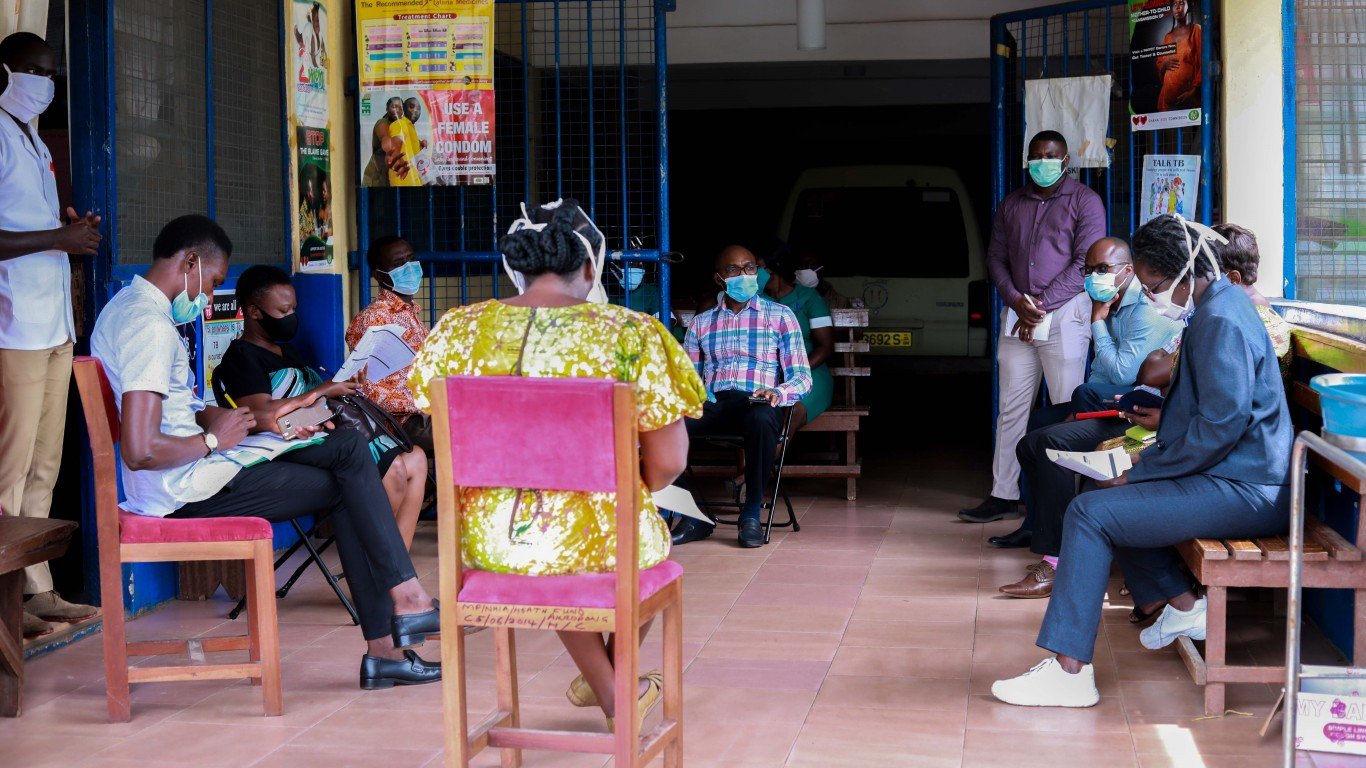
Ghana
> Population: 31,072,940
The African nation of Ghana has implemented a Zero Malaria Starts With Me campaign, a social movement to eradicate that disease in Africa. The movement is intended to mobilize all segments of society to work toward the elimination of malaria by 2030. Malaria cases have been reduced by 88% since 2012, according to the World Health Organization. The disease is still a problem in Ghana, however, with the country reporting 6.7 million cases in 2018, according to WHO.
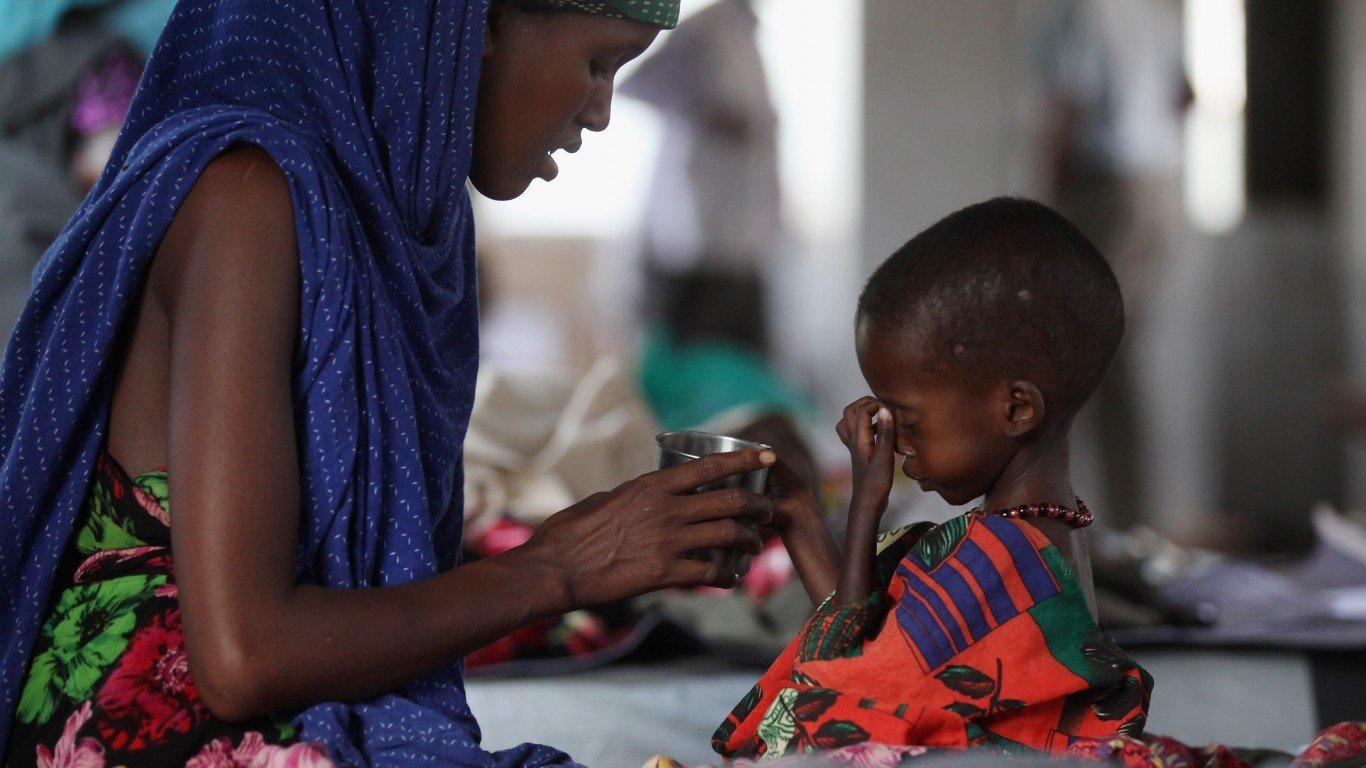
Kenya
> Population: 53,771,296
MERS, or Middle East Respiratory Syndrome, an illness caused by a coronavirus, originated in Saudi Arabia in 2012. Most patients developed severe respiratory problems with symptoms of fever, cough, and shortness of breath. The MERS threat to people is mostly caused by other humans. As climate change makes droughts more frequent and severe, animal herders have had to abandon sheep and other livestock in favor of camels, which can survive for prolonged periods without water. The result is a growing number of camels, which can transmit the virus, in close contact with humans In Kenya, home to 10% of the world’s camel population, scientists are testing both camels and people to try and stop a MERS outbreak.
[in-text-ad-2]

Japan
> Population: 126,476,461
Japan’s response to the novel coronavirus pandemic was considered one of the better ones in the world. The Asian nation established clear decision-making structures and relationships between local and central government. Japan strengthened surveillance capabilities and provided transparent transmission of information. The Harvard School of Public Health also lauded Japan’s public health model, which features local public health centers that act as “miniature CDCs.” When Covid-19 hit, these centers managed patient triaging, contact tracing, and testing, and directed patients to designated hospitals for isolation.

Malawi
> Population: 19,129,952
Residents of the landlocked African nation of Malawi had a high rate of people who built up immunity to COVID. A large majority of its population is 18 and under, a cohort that typically was not sickened by the pandemic. By the time the Delta variant appeared last summer, as much as 80% of Malawi’s population had already been infected with some strain of the coronavirus. Shabir Madhi, a South African vaccinologist, said future vaccination efforts should target the most vulnerable and those over 50 years old, instead of trying to vaccinate everyone.
[in-text-ad]
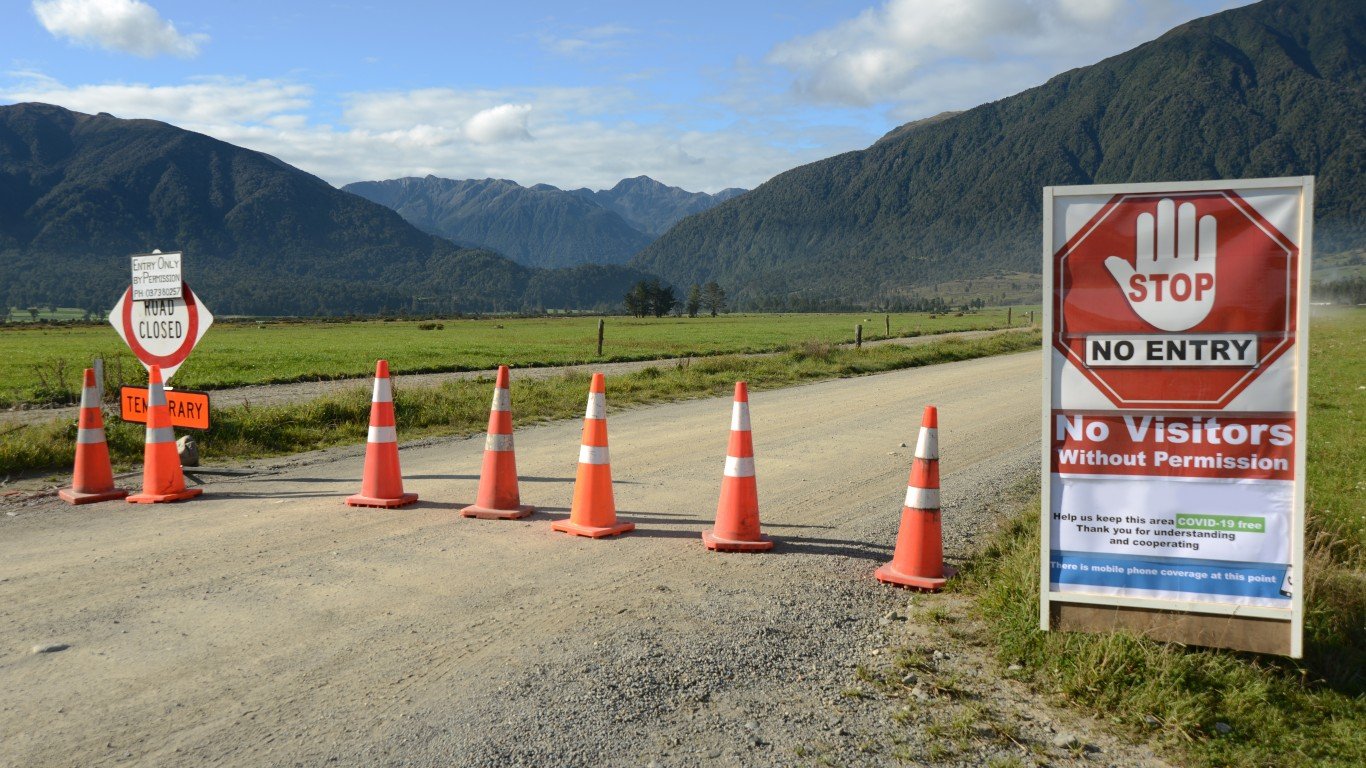
New Zealand
> Population: 4,822,233
New Zealand’s aggressive measures to halt the spread of the coronavirus will likely be employed again for the next pandemic. The island nation has kept death rates down to a mere 53 so far by imposing strict border rules, quarantine policies, and lockdowns. Even as the Omicron variant subsides, many of New Zealand’s vaccine mandates remain in place. Among other things, that means that teachers, doctors, nurses, police, and military personnel must be vaccinated to stay employed. New Zealand raised its score on the Global Health Security Index by increasing capacity across laboratory system strength and quality, supply chains, and epidemiological workforce.
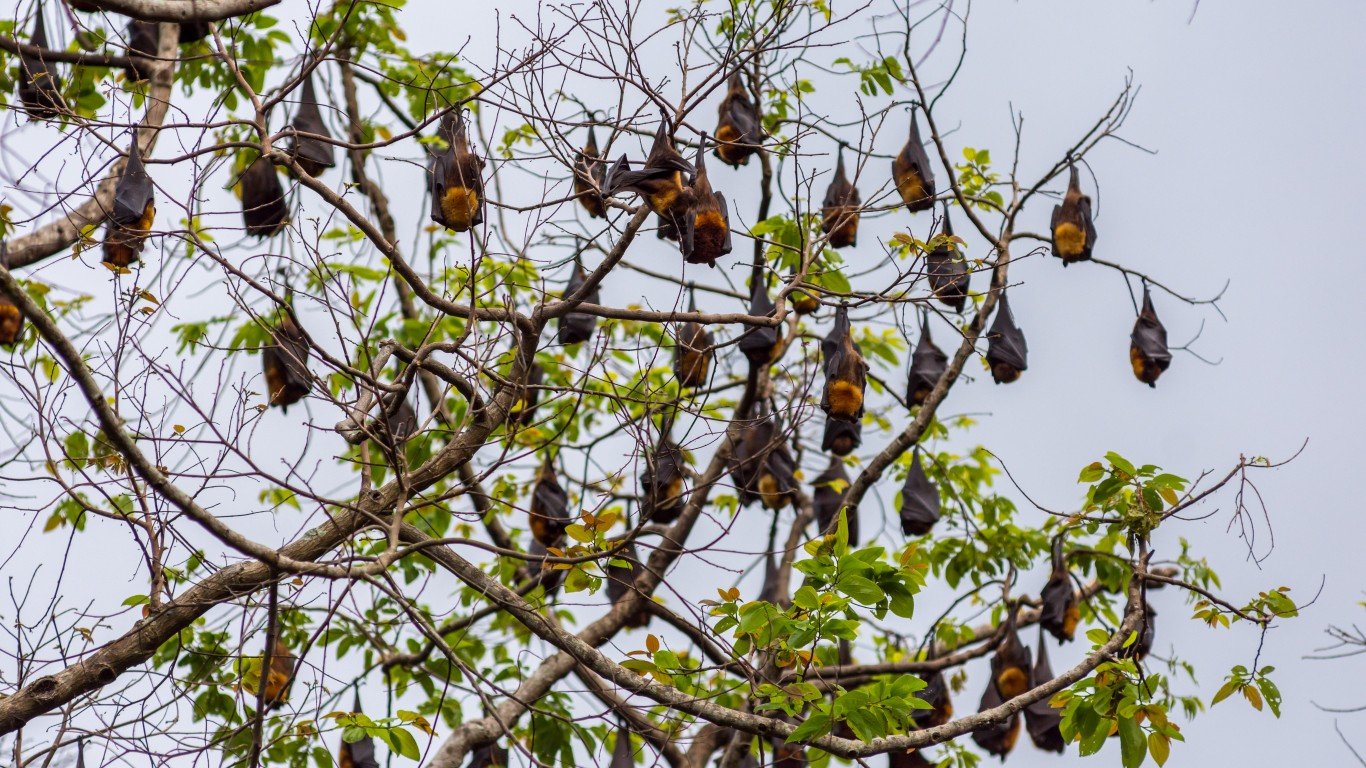
Philippines
> Population: 109,581,078
The Philippines saw an almost 20-point increase in its score for the detection category in the 2021 Global Health Security Index to 52.6, compared with a global average of 32.3. Of particular note was its improvement in real-time surveillance and transparency.
Scientists in the Philippines are catching bats in the rain forest to try to find other strains of coronavirus that have the potential to jump to humans.

Rwanda
> Population: 12,952,218
Landlocked Rwanda relies on cross-border travel of trucks to transport essential goods, such as medicine. To prevent contamination, countries digitally shared the COVID-19 test results of the truck drivers and quarantined and treated those who were infected. According to data from Johns Hopkins University & Medicine, only 1,449 people in Rwanda have died from the pandemic. Rwanda was also quick to lock down its border when the pandemic hit and forbid nonessential travel within the country. It identified vulnerable members of communities and provided them with food and financial relief. These are measures that the nation will likely continue in the next pandemic.
[in-text-ad-2]
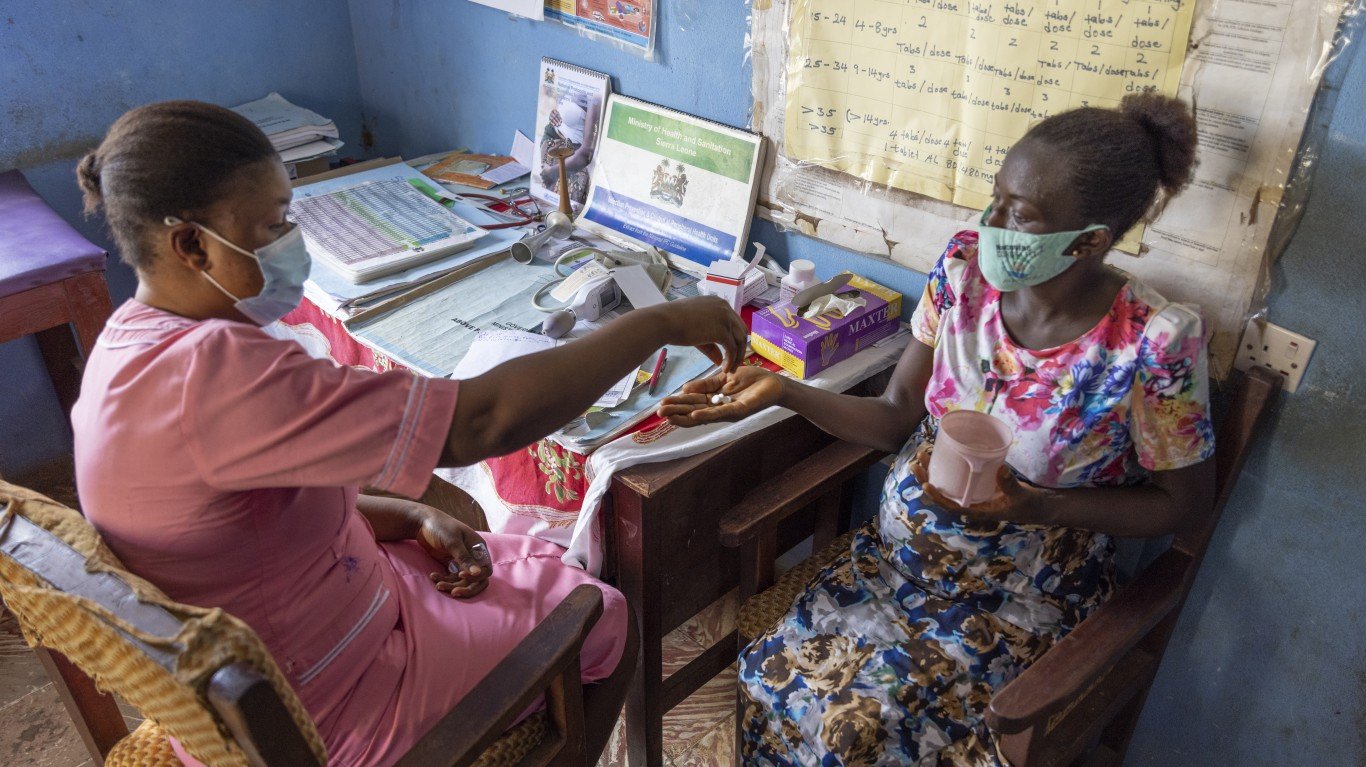
Sierra Leone
> Population: 7,976,983
Sierra Leone has one of the world’s highest burdens for malaria. The African nation has implemented its Zero Malaria Starts With Me campaign, a social movement to eradicate malaria in Africa. The country’s national malaria control program also will promote community engagement through activities to raise awareness of malaria prevention tools, such as beds treated with insecticide.

Singapore
> Population: 5,850,342
The city-state of Singapore, like some other countries in Southeast Asia, was reasonably well-prepared for the pandemic because of an early alert system. (Many nations in Asia face a perennial threat of communicable upper respiratory diseases.) Among the preventative measures Singapore took was the screening of passengers and temperature checks at airports and ports of entry. This system serves as a perimeter defense against the spread of diseases. The use of masks to prevent the spread of diseases has been more broadly accepted in Asian nations than elsewhere, even before COVID. Singapore also developed a centralized, real-time database of its health records to buttress disease surveillance and case detection.
[in-text-ad]

South Africa
> Population: 59,308,690
To prepare for the next pandemic, Tim Tucker, a clinical virologist and adjunct Associate Professor at University of Cape Town School of Public Health and Family Medicine, recommends South Africa establish a presidential panel to outline a long-term pandemic strategy. He also suggests investing in better-prepared laboratory services; improving epidemiology data collection and surveillance; increasing vaccine manufacturing capacity; and improving vaccine distribution.

South Korea
> Population: 51,269,185
Like other Asian nations, South Korea was better prepared than most for a pandemic. South Korea learned important lessons from the MERS outbreak of 2015 and worked to construct institutional capacity. This involved building the legal infrastructure that provides the government with special powers and the healthcare and public health system in charge of treating infected patients, and using technology to support public health efforts to mitigate the spread of an outbreak. South Korea also created an infectious-disease expert network, strengthened its centralized communications system, developed a central database, and implemented strict border controls.
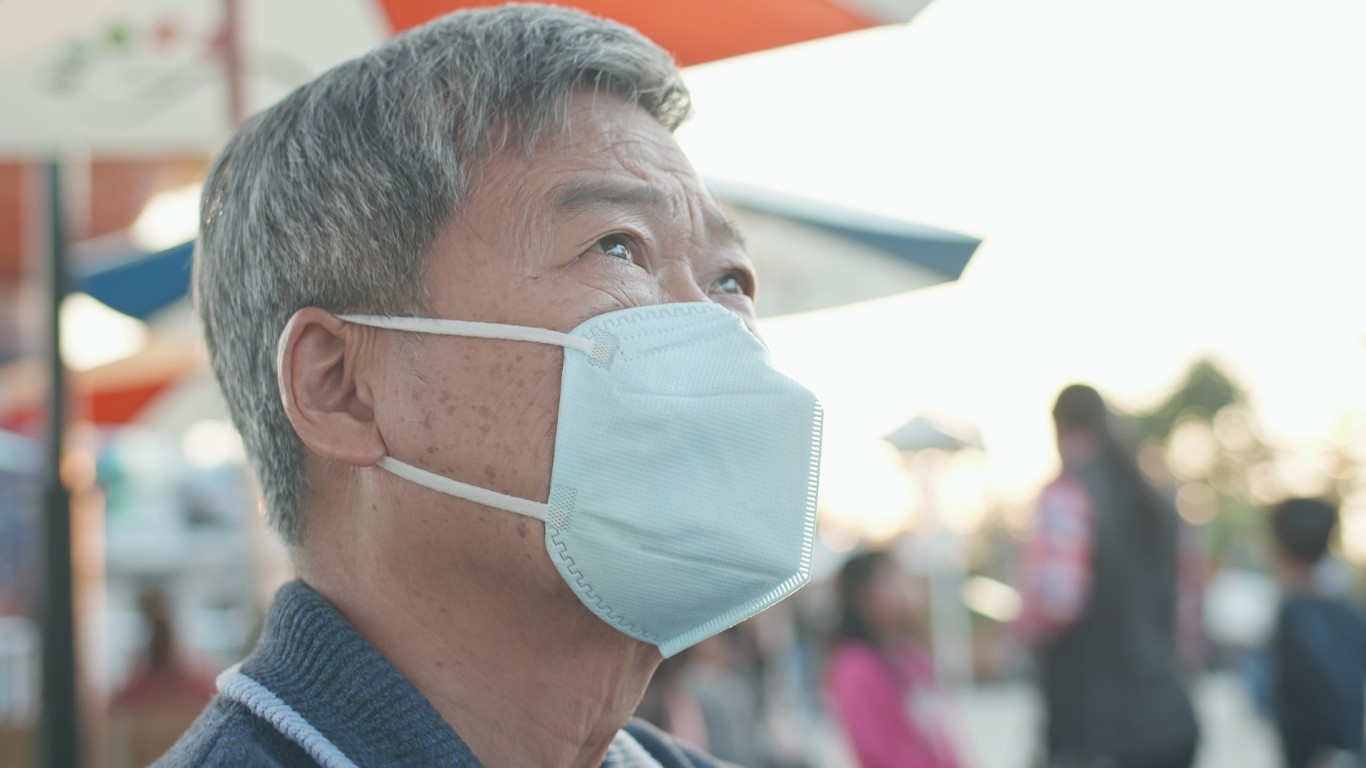
Taiwan
> Population: 23,816,775
Taiwan has been acutely aware of its vulnerability to pandemics, having learned a hard lesson from the deadly SARS outbreak in 2003. The island nation closely monitors developments in China, where many epidemics originate, imposing strict control measures, such as two weeks of quarantine for anyone flying onto the island, and has invested heavily in testing and tracing. Only 851 people in Taiwan have died from coronavirus thus far, according to data from Johns Hopkins University & Medicine.
[in-text-ad-2]
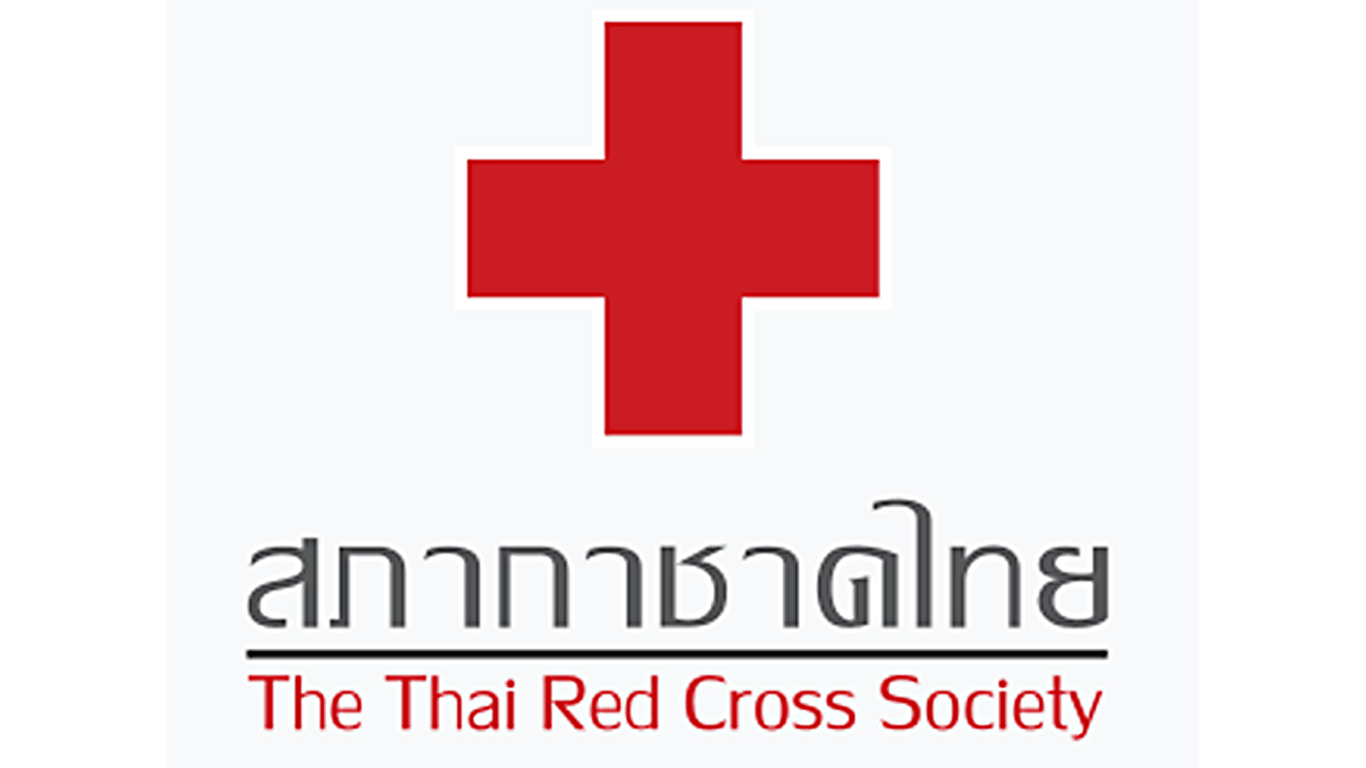
Thailand
> Population: 69,799,978
Scientists in Thailand, working with researchers in Cambodia and Australia, are studying the transmission of deadly Nipah virus via fruit bats. In Thailand bat guano is used to fertilize fields, exposing humans to Nipah, and some Thais sell excess bat guano to earn a living, putting them at increased risk. A new program called the Thai Virome Project, a collaboration between the Thai Red Cross Emerging Infectious Disease-Health Science Center and the government’s Department of National Parks, Wildlife and Plant Conservation will allow scientists to sample more bats and a wider range of wildlife to understand the diseases that threaten human health.
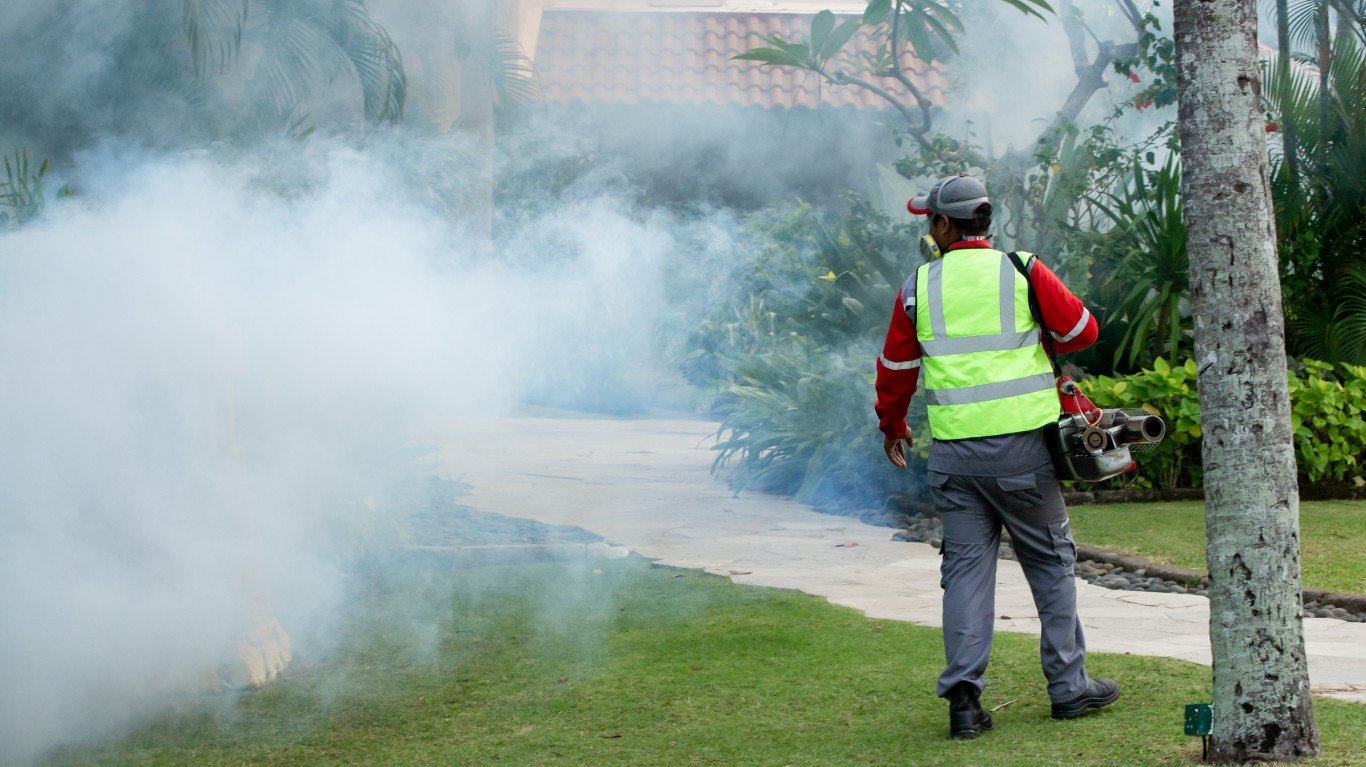
United States
> Population: 331,002,651
In 2019, scientists working at Guantánamo Bay in Cuba found a new virus transmitted by mosquito bites. The mosquito is a vector of the chikungunya, Zika, dengue fever, and yellow fever viruses, among other diseases. The Navy’s Preventative Medicine Unit at Guantánamo started weekly sprayings of residential areas near where the first specimens were found. By conducting biosurveillance, scientists seek out possible vectors that can be deadly. Diseases transmitted by mosquitoes kill more than a million people worldwide each year, and officials are concerned that because of climate change, North American winters are shorter and not as cold, allowing mosquitos to live longer and infect more people.
Essential Tips for Investing: Sponsored
A financial advisor can help you understand the advantages and disadvantages of investment properties. Finding a qualified financial advisor doesn’t have to be hard. SmartAsset’s free tool matches you with up to three financial advisors who serve your area, and you can interview your advisor matches at no cost to decide which one is right for you. If you’re ready to find an advisor who can help you achieve your financial goals, get started now.
Investing in real estate can diversify your portfolio. But expanding your horizons may add additional costs. If you’re an investor looking to minimize expenses, consider checking out online brokerages. They often offer low investment fees, helping you maximize your profit.
Thank you for reading! Have some feedback for us?
Contact the 24/7 Wall St. editorial team.
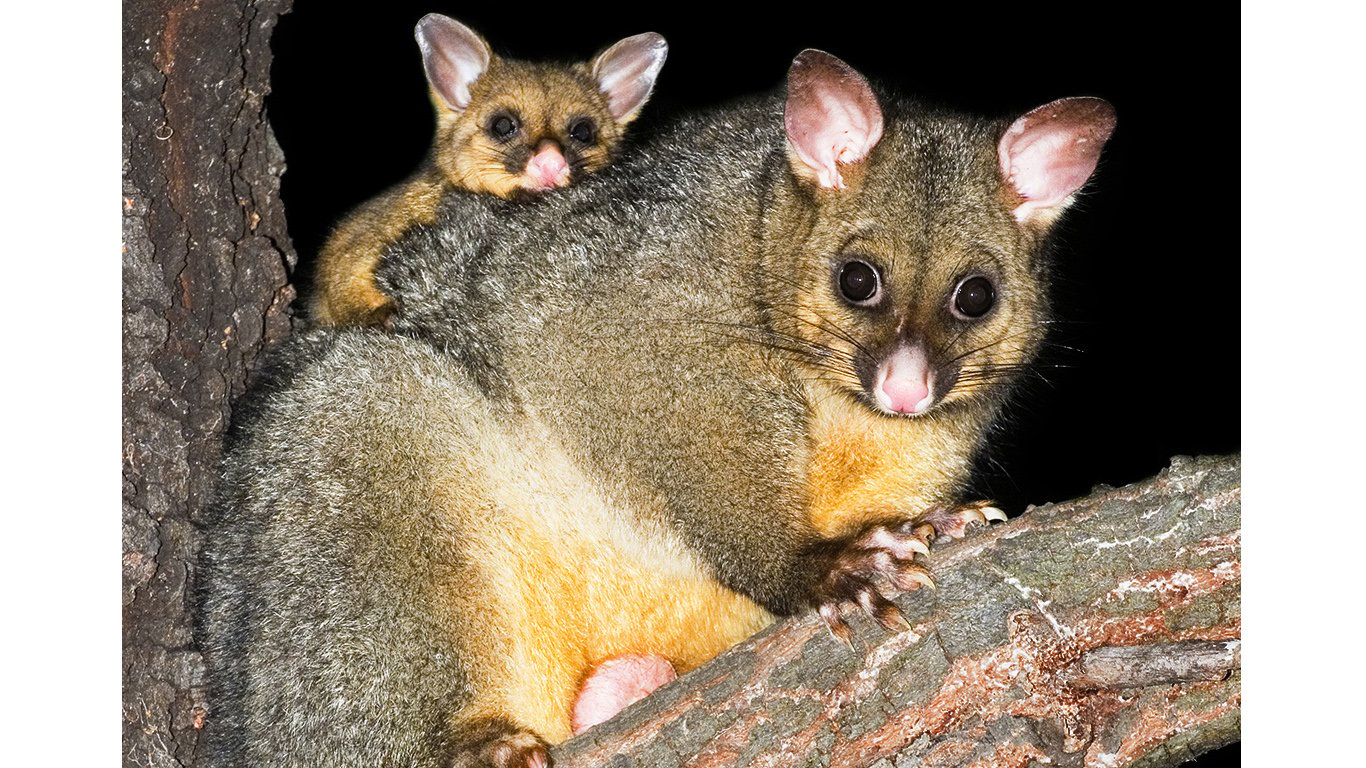
 24/7 Wall St.
24/7 Wall St.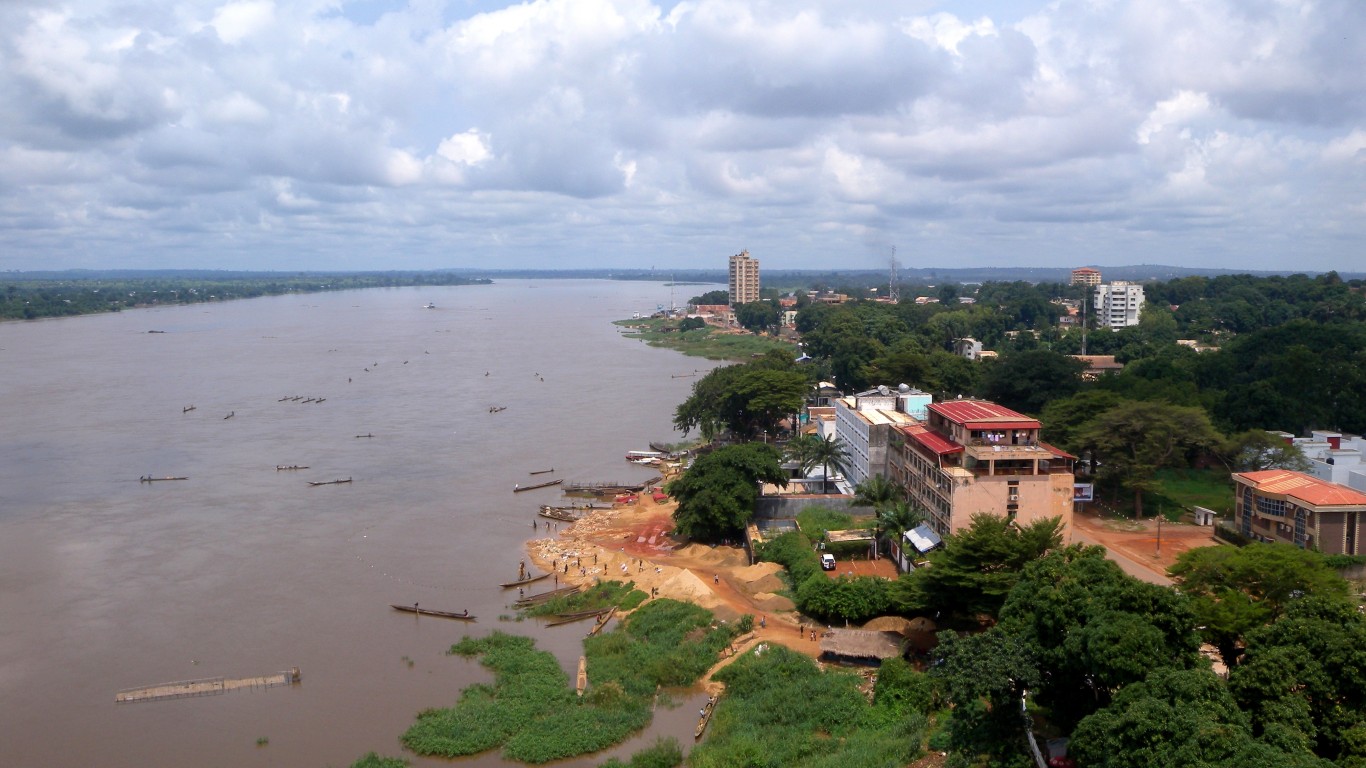 24/7 Wall St.
24/7 Wall St.


